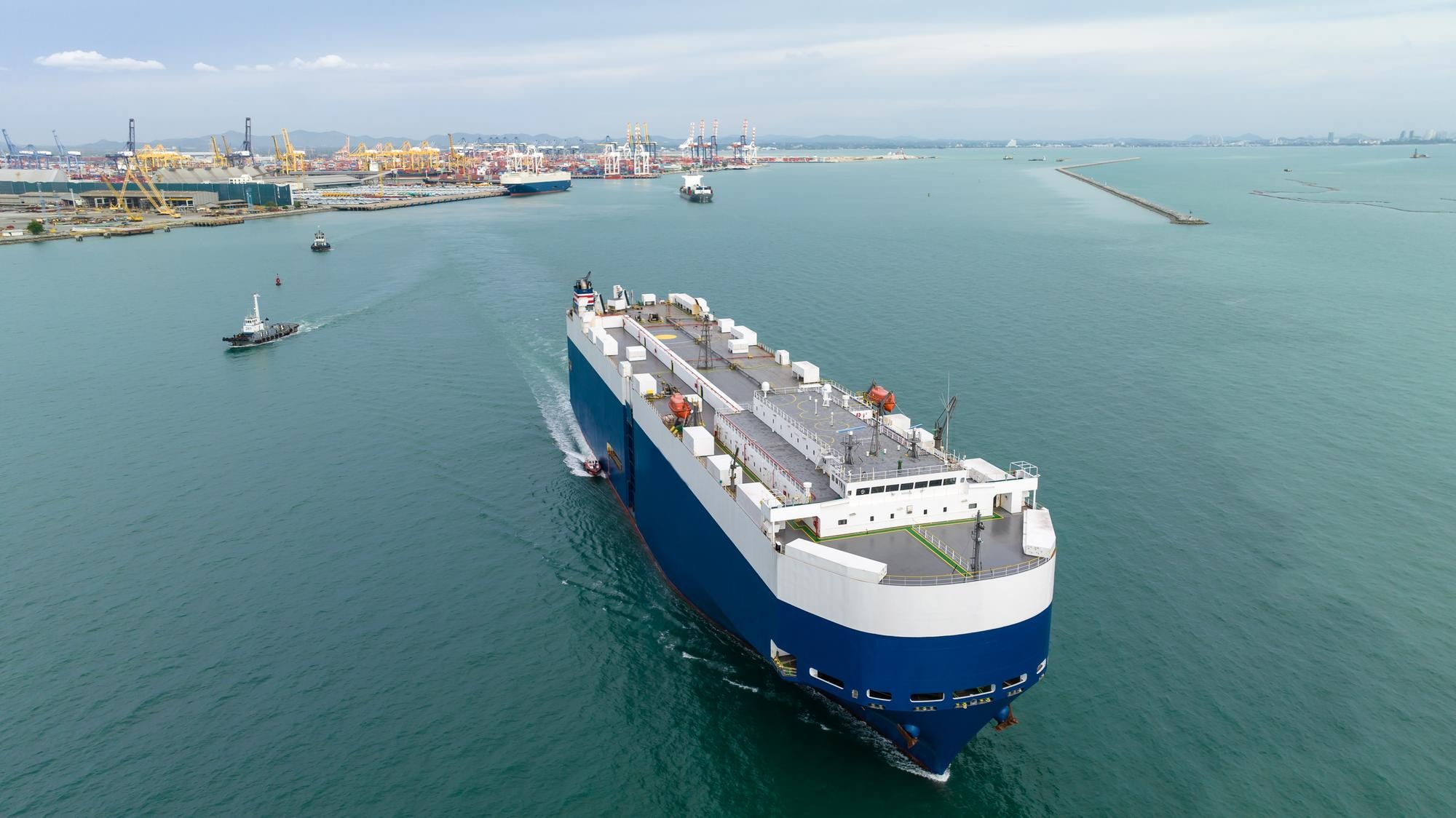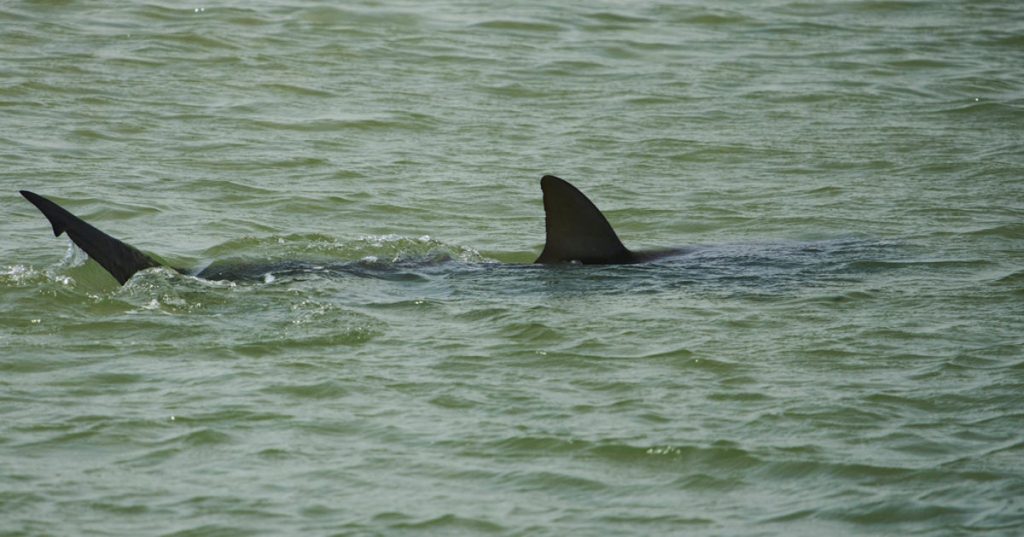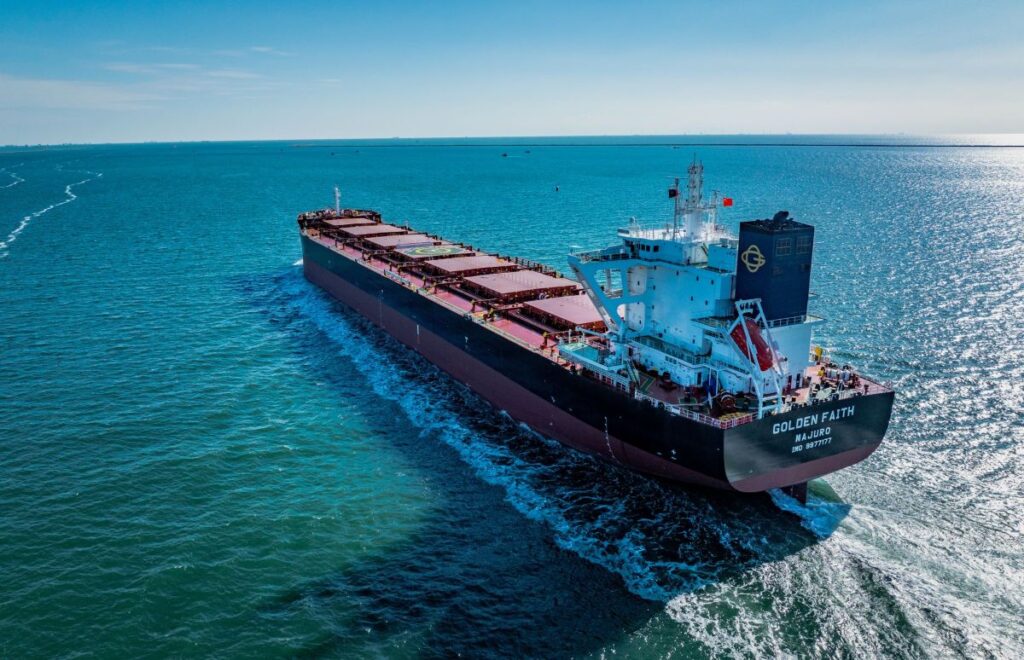Now Reading: South Korea–Europe green shipping corridor promises 70% CO₂ cut
-
01
South Korea–Europe green shipping corridor promises 70% CO₂ cut
South Korea–Europe green shipping corridor promises 70% CO₂ cut

New Report Shows South Korea–Europe Green Shipping Corridor Could Slash CO2 Emissions by Over 70%
April 23, 2025, by Naida Hakirevic Prevljak
A recent study has highlighted that the proposed South Korea–Europe Green Shipping Corridor (GSC) has the potential to reduce carbon emissions by more than 70% along crucial trade routes between Pyeongtaek Port and major European automotive centers. The report titled ‘Charting a Net-Zero Pathway’, released by South Korea’s nonprofit Solutions for Our Climate (SFOC), suggests the establishment of a green shipping corridor between Pyeongtaek Port and major European ports like Bremerhaven, Antwerp, Zeebrugge, and Southampton. This initiative aims to facilitate the decarbonization of the maritime sector and serve as a pioneering model for long-distance, low-emission shipping. The collaboration between Korea and Europe comes at a critical time following the International Maritime Organization’s (IMO) recent announcement of a net-zero Framework at MEPC 83, offering an opportunity to lead the global shipping industry towards decarbonization, according to SFOC.
The proposed corridor signifies a significant advancement for South Korea’s Greenship-K Program, designed to eliminate greenhouse gas emissions from shipping by 2050, aligning with the IMO’s net-zero target of 2050. The focus of the corridor is on pure car and truck carriers (PCTCs), which operate on high-volume routes and require less complex cargo-handling infrastructure compared to container terminals. This makes them suitable for early adoption of green technologies, presenting a practical and scalable approach for implementing zero-emission shipping solutions.
Beyond operational considerations, the Korea–Europe GSC has broader implications for global green corridor developments. By catering to a variety of vessel classes and prioritizing long-haul transcontinental routes over intra-European short-sea shipping, the corridor aims to achieve significant absolute emissions reductions, as explained by the organization.
Pyeongtaek Port, a vital hub for automotive trade in Korea, plays a strategic role in launching green corridor initiatives and is considered conducive to green corridor development due to its governance structure. The port, overseen by Pyeongtaek Regional Office of Oceans and Fisheries and largely funded by private capital, is seen as well-suited for public-private partnerships, a crucial component of the proposed GSC implementation strategy. To realize the potential of the corridor, the report suggests the introduction of policy measures such as a dedicated Green Corridor Act, fuel supply infrastructure, and enhanced financial incentives, in addition to active involvement from key private-sector stakeholders.
An innovative aspect of the Korea–Europe GSC proposal is the adoption of green methanol as a low-carbon alternative to traditional marine fuels. Green methanol, derived from renewable sources, produces near-zero emissions compared to fossil fuel-based gray or brown methanol. Transitioning to green methanol could significantly reduce CO2 emissions, with the report highlighting the importance of establishing a reliable and scalable supply chain to support its increased use in global marine fuel consumption by 2050.
In light of evolving global dynamics, the establishment of green shipping corridors with Europe presents a strategic opportunity for South Korea to collaborate and align with the EU’s efforts in maritime decarbonization. The move is crucial for securing the long-term competitiveness of Korea’s shipping and shipbuilding industries amidst stricter environmental regulations and emission reduction targets set by international bodies like the IMO.
The popularity of green shipping corridors is on the rise worldwide, with South Korea and Australia recently announcing plans to establish a green shipping corridor to support zero-emission goals in international shipping. Similarly, industry leaders from North America, Asia, and Europe joined forces to create the North Pacific Green Corridor Consortium (NPGCC) to work together towards decarbonizing commodity transportation between North America and Asia. The NPGCC aims to develop a corridor for decarbonizing the transportation of various commodities, including agricultural products, metal concentrates, and steelmaking coal.






